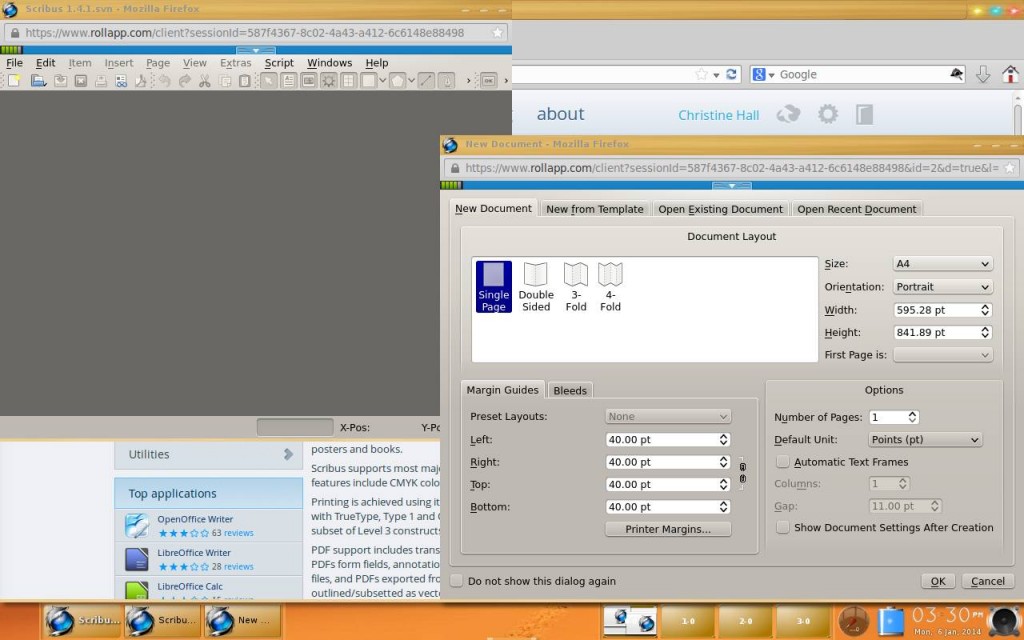I wanted to be able to tell you that despite rollApp being in beta it’s pretty much ready to go. Unfortunately, I can’t, because it isn’t. There are some limitations that make using the site a deal breaker for most users. When the developers get those worked out, however, rollApp will be ready to be a major player in the world of online apps.
For those who don’t know, rollApp is a startup that intends to offer in-the-browser online versions of many favorite applications. Already they have an impressive roster of apps up and running–such as the entire LibreOffice suite, Gedit, Scribus, Inkscape and Darktable. Except for some limitations, they work great–you’d hardly know you weren’t using an application that’s sitting on your own hard drive.
However, the limitations, until fixed, render the online apps unusable for most real-life purposes.
Christine Hall has been a journalist since 1971. In 2001, she began writing a weekly consumer computer column and started covering Linux and FOSS in 2002 after making the switch to GNU/Linux. Follow her on Twitter: @BrideOfLinux






